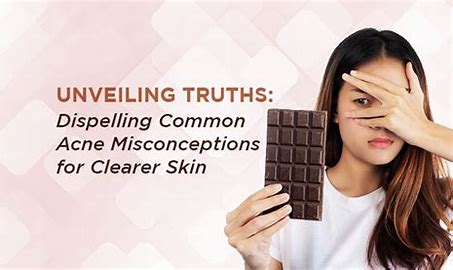Acne is one of the most common skin conditions, yet it’s surrounded by myths that can prevent people from seeking the right treatment or understanding how to manage it effectively. Let’s explore and debunk some of the biggest misconceptions about acne.
1. Acne Only Affects Teenagers
Many people believe acne is solely a teenage problem caused by puberty. While it’s true that hormonal changes during adolescence often lead to breakouts, acne doesn’t disappear as you age.
The Reality:
Acne can affect people of all ages. Adult acne is increasingly common, especially in women, due to factors such as:
- Hormonal changes (e.g., during menstrual cycles, pregnancy, or menopause).
- Stress, which triggers the release of cortisol and can lead to breakouts.
- Certain medications or underlying health issues.
- Poor skincare habits or the use of products that clog pores.
If you’re an adult struggling with acne, you’re not alone—and treatment options are available to address your specific needs.
2. Acne Will Go Away on Its Own
Another common misconception is that you can just “wait out” acne, and it will resolve without intervention.
The Reality:
While mild cases of acne may clear up with time, moderate to severe acne often requires a targeted skincare routine or medical treatment. Ignoring acne can:
- Prolong the duration of breakouts.
- Increase the risk of permanent scarring or post-inflammatory hyperpigmentation.
- Damage your self-confidence and mental health.
Early intervention with the right products or guidance from a dermatologist can significantly reduce acne and improve skin health. Don’t wait—address it head-on.
3. Acne Only Affects Your Face
Many believe acne is limited to facial skin, but this is far from true.
The Reality:
Acne can develop anywhere on the body with oil glands, including the:
- Back (commonly called “bacne”).
- Chest.
- Shoulders.
- Upper arms.
Body acne often requires similar care to facial acne, including:
- Gentle cleansing with an acne-fighting wash (such as one containing salicylic acid).
- Regular exfoliation to prevent clogged pores.
- Avoiding tight, non-breathable clothing that traps sweat and bacteria.
Paying attention to body acne can help you feel more comfortable in your skin all over, not just your face.
The Truth About Acne:
Acne is a complex condition influenced by genetics, hormones, lifestyle, and skincare habits. Understanding and addressing these misconceptions is key to effectively managing acne and achieving healthier skin.
Remember, your skin journey is unique, and finding the right approach may take time. Whether it’s incorporating better products, adjusting your habits, or seeking professional advice, you can take control and see improvement.
For more tips:
Subscribe on YouTube: Diana Lily Acne Free Club
Follow on Facebook: Acne Free Club
Follow on Instagram: @dianalily_acnefreeclub
Your acne-free skin journey starts now! 🌟

